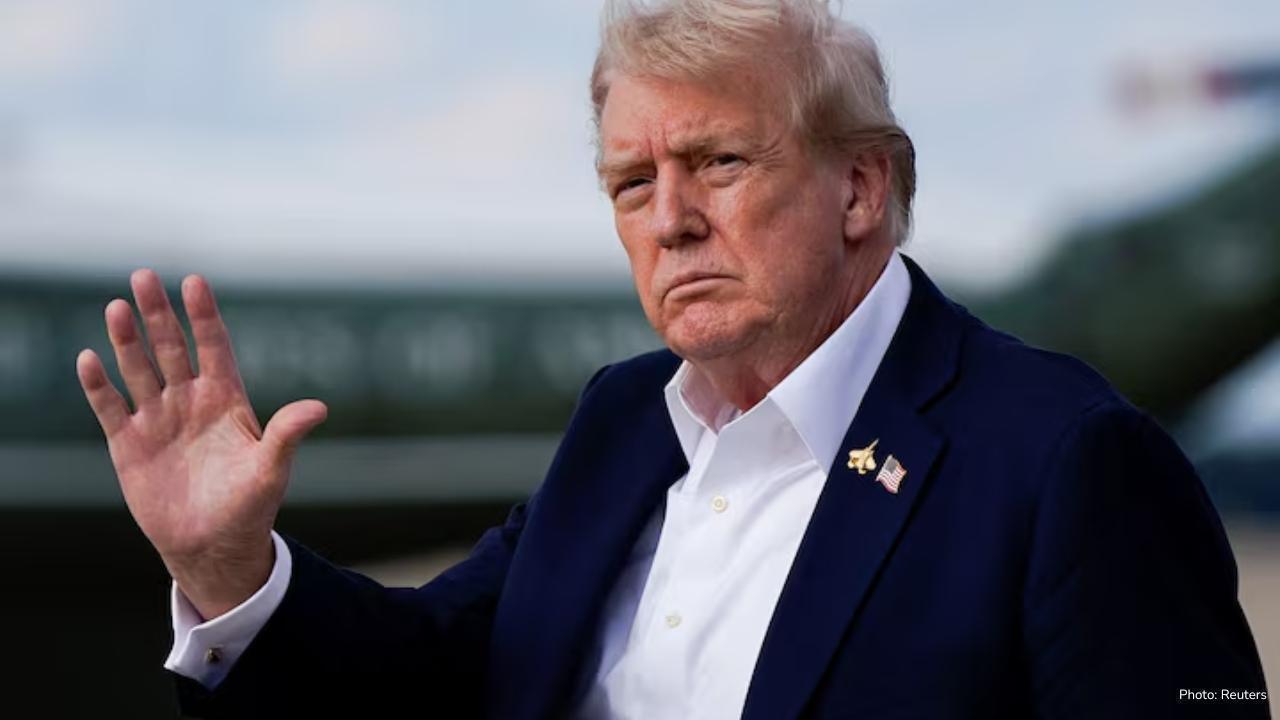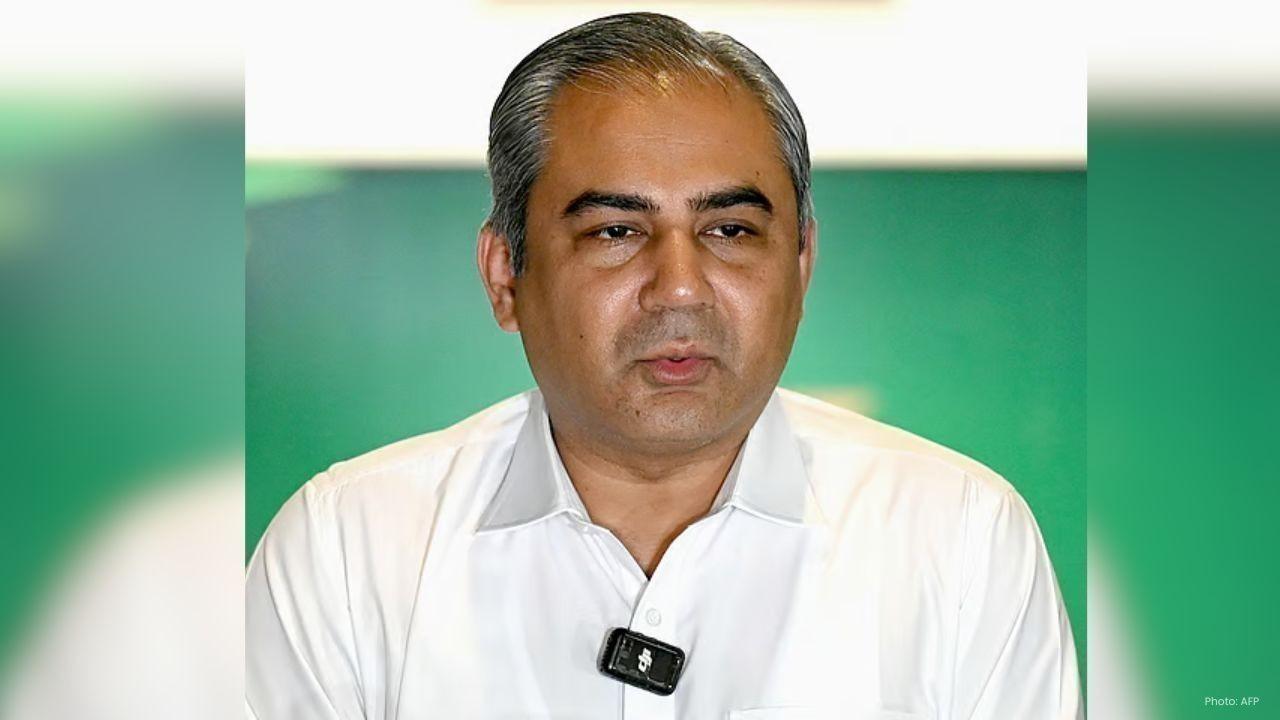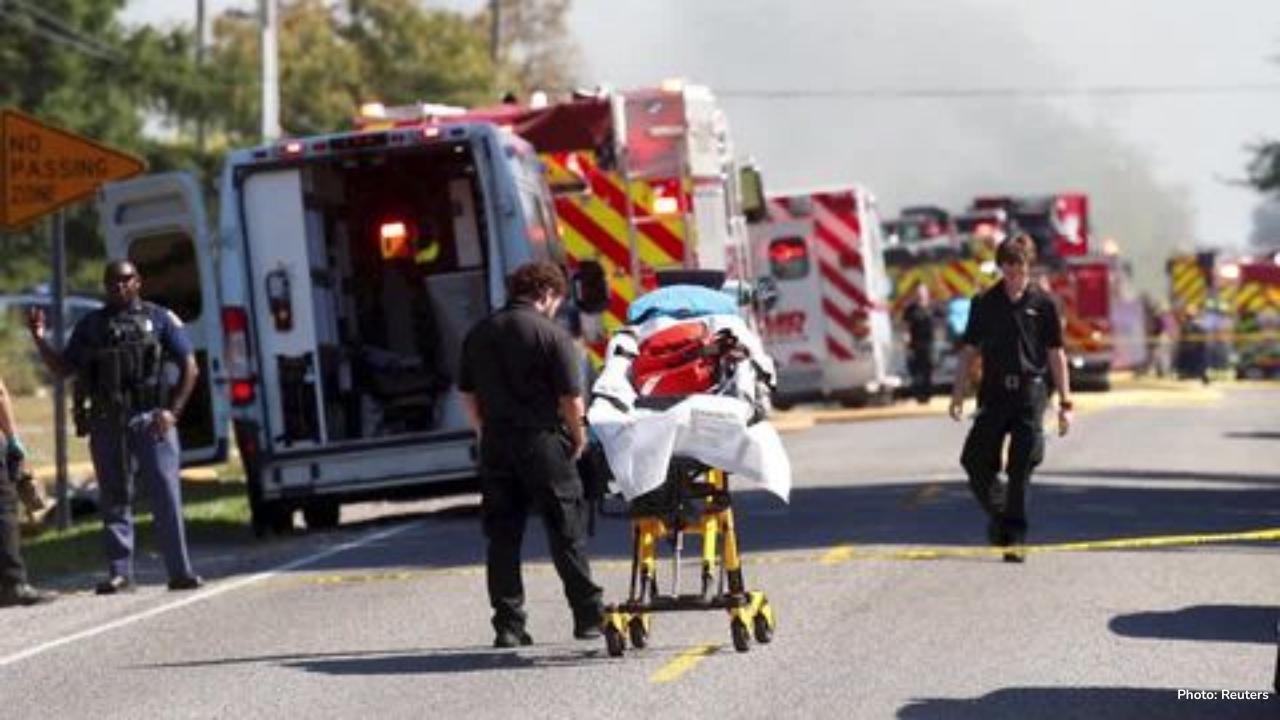
Post by : Monika
U.S. President Donald Trump has expressed confidence that a new peace agreement in the Middle East could be reached soon. This plan focuses mainly on ending the ongoing conflict in Gaza, which has seen months of fighting, civilian casualties, and widespread destruction. Trump made these remarks ahead of a scheduled meeting with Israeli Prime Minister Benjamin Netanyahu at the White House.
Trump stated, “We’re getting a very good response because Bibi wants to make the deal too. Everybody wants to make the deal.” These words signal that the United States is actively trying to bring Israel, Palestinian representatives, and other regional actors together to achieve a ceasefire and create a lasting solution to the ongoing humanitarian and security crisis in Gaza.
Background of the Gaza Conflict
The Gaza Strip has long been a center of tension in the Middle East. Hamas, a militant group, has controlled the area for years, often engaging in hostilities with Israel. The conflict escalated dramatically after October 7, 2023, when Hamas carried out attacks that led to a massive Israeli military response. According to Gaza health authorities, tens of thousands of Palestinians were killed, and thousands more were injured.
The destruction has been severe. Many families lost their homes, schools and hospitals were damaged, and basic services like water, electricity, and healthcare were disrupted. Millions of people in Gaza are now in urgent need of food, medicine, and other humanitarian aid. The international community has repeatedly called for urgent action to help civilians while addressing the security concerns of Israel.
The Proposed Peace Plan
President Trump and his team have prepared a 21-point peace plan to address the conflict. The plan focuses on three main areas:
Hostage Return:
The plan stresses the importance of securing the release of all hostages held by Hamas. These hostages include both those alive and deceased. Negotiating their release is seen as a key step toward building trust between Israel and Hamas and setting the stage for broader peace efforts.
Ceasefire and Non-Aggression:
The plan calls for an immediate end to Israeli military operations in Gaza. It also asks that Hamas halt attacks on Israel and avoid any attacks on neighboring countries such as Qatar. By reducing violence on all sides, the plan hopes to create conditions for dialogue and cooperation.
Renewed Dialogue:
A central part of the plan is initiating new discussions between Israel and Palestinian representatives. These talks aim to address long-standing issues, such as territory, security, and humanitarian access, and to lay the foundation for peaceful coexistence.
The plan has been shared with several regional leaders and governments, including Saudi Arabia, Qatar, the United Arab Emirates (UAE), Egypt, and Jordan. These countries have expressed support for the idea of a negotiated settlement and have pledged to assist in diplomatic and humanitarian efforts.
Mixed Reactions
While some countries and international leaders have welcomed the plan, reactions have been mixed. A representative from Hamas stated that the group had not been presented with the U.S. plan and did not formally acknowledge it. This shows that, despite support from regional powers, there are still significant challenges to implementing the proposal.
Israel has shown cautious optimism. Prime Minister Netanyahu’s willingness to meet with Trump is seen as a positive sign that Israel may engage seriously with the peace initiative. However, details of Israel’s final position are yet to be confirmed.
The U.S. administration is working hard to ensure that both sides remain engaged in dialogue and that key issues, such as the release of hostages and security guarantees, are addressed in a fair and balanced manner.
Importance of Hostage Negotiations
One of the most critical elements of the plan is the safe return of hostages. These individuals are held under difficult and dangerous conditions, and their release is seen as a moral and political necessity.
Hostage negotiations are delicate and require the cooperation of multiple parties. U.S. officials are working with regional partners, including Egypt and Qatar, to help facilitate these discussions. International support and oversight are considered essential to ensure that agreements are upheld and that hostages are treated humanely.
The success of these negotiations could also build confidence among all parties, creating a better environment for wider peace talks.
Regional Support
Regional powers have played a key role in supporting the peace initiative. Saudi Arabia has offered diplomatic backing, emphasizing the need to protect civilians and maintain stability. Qatar and the UAE have pledged support for humanitarian aid efforts, ensuring that civilians in Gaza receive food, medical care, and basic services.
Egypt has historically acted as a mediator between Israel and Hamas, using its influence to negotiate temporary ceasefires and facilitate humanitarian access. Jordan, which has a large Palestinian population, has also expressed support for efforts to resolve the conflict peacefully.
By working together, these regional actors aim to encourage dialogue, reduce hostilities, and ensure that aid reaches those in need. Their involvement is seen as crucial for the success of any peace plan.
Humanitarian Relief
The peace plan also emphasizes the urgent need for humanitarian assistance in Gaza. The war has caused severe shortages of food, medicine, clean water, and shelter. Hospitals are overwhelmed, and schools have been damaged or destroyed.
International organizations, including the United Nations, have called for immediate aid delivery. The U.S. and regional partners are coordinating to ensure that assistance is delivered quickly and safely. The plan also includes proposals for long-term reconstruction and development, helping Gaza recover from the effects of the conflict.
Diplomatic Challenges
Despite optimism, there are significant diplomatic challenges. Hamas has not formally accepted the plan, and other groups in Gaza may resist negotiations. Israel has security concerns and wants guarantees that any agreement will prevent future attacks.
Trust is a major issue. Years of conflict have left both sides skeptical of each other’s intentions. The U.S. and regional partners must work carefully to build confidence, maintain dialogue, and prevent new outbreaks of violence.
Additionally, international law and political considerations complicate negotiations. Any agreement must respect the rights of civilians, adhere to security requirements, and be acceptable to multiple stakeholders in the region.
Trump’s Optimism
President Trump remains hopeful that a breakthrough is possible. He emphasized that Israel’s leadership, particularly Prime Minister Netanyahu, is motivated to make a deal. Trump expressed confidence that with support from regional powers and careful negotiation, the peace plan could succeed.
He also noted that diplomacy and collaboration are key. The involvement of multiple countries and organizations demonstrates a shared commitment to ending violence, protecting civilians, and promoting stability in the region.
Global Attention
The Gaza conflict has attracted worldwide attention. Media outlets, governments, and humanitarian organizations are closely monitoring developments. The peace plan is being watched as a potential turning point in one of the world’s longest-running conflicts.
Public opinion is also important. People around the world are concerned about civilian casualties and the humanitarian crisis. The flotilla of aid missions, peace talks, and international engagement reflects a global desire to resolve the crisis peacefully.
Possible Outcomes
However, there is also a risk that talks could stall or break down. If parties do not agree, violence could continue, further worsening the humanitarian situation. Trump and his team are aware of these risks and are working to manage expectations while maintaining diplomatic momentum.
Importance of International Cooperation
The success of any peace effort in the Middle East depends on international cooperation. The U.S., regional powers, and global organizations must coordinate to provide security, humanitarian assistance, and diplomatic support.
Efforts must also focus on transparency and accountability. Ensuring that agreements are implemented fairly is essential for building trust and creating lasting solutions.
The involvement of multiple countries highlights the global significance of peace in Gaza. Stability in the region affects international security, trade, and relations among nations.
Looking Ahead
The upcoming meeting between President Trump and Prime Minister Netanyahu is seen as a critical moment. Observers hope that Israel will show flexibility and willingness to engage in the peace process.
Meanwhile, regional powers are prepared to support the initiative. Humanitarian aid continues to be delivered where possible, and diplomatic channels remain open.
The success of the plan will depend on negotiation, trust-building, and the cooperation of all parties. If successful, it could mark a turning point in the Gaza conflict and contribute to broader peace in the Middle East.
President Trump’s statements reflect cautious optimism about resolving the Gaza conflict through diplomacy. The proposed peace plan focuses on releasing hostages, ending violence, and restarting dialogue.
While challenges remain, including distrust, ongoing hostilities, and political complexities, international support and careful negotiation could create opportunities for peace. The world is watching closely, hoping that these efforts will provide relief to civilians, restore stability, and lay the groundwork for long-term resolution.
The plan demonstrates that even in a region marked by decades of conflict, cooperation, dialogue, and humanitarian concern can offer a path toward peace.
Donald Trump Benjamin Netanyahu Gaza peace plan










Sinner & Swiatek Shine at China Open: Semifinal Spots Secured
Jannik Sinner and Iga Swiatek advance to the semifinals at the China Open. Read about their victori

Michigan church attack kills 4, injures 8 in shocking violence
A gunman drove into a Michigan church, fired shots, set fire, killing 4 and injuring 8 before police

Moldova’s Pro-EU Party Secures Majority in Key Vote
Moldova’s pro-European PAS wins a strong majority in the parliamentary election, weakening pro-Russi

Gabriel’s late header gives Arsenal 2-1 win at Newcastle
Arsenal snatch dramatic 2-1 win at Newcastle as Gabriel heads the winner in stoppage time; Merino eq

Air France Flight 447 Trial Opens 16 Years After Tragic Crash
Sixteen years after the Air France Flight 447 crash, a trial opens against Air France and Airbus. Le

Europe close to Ryder Cup win after strong weekend play
Team Europe is on the verge of winning the Ryder Cup, showing great form in Italy and needing only a